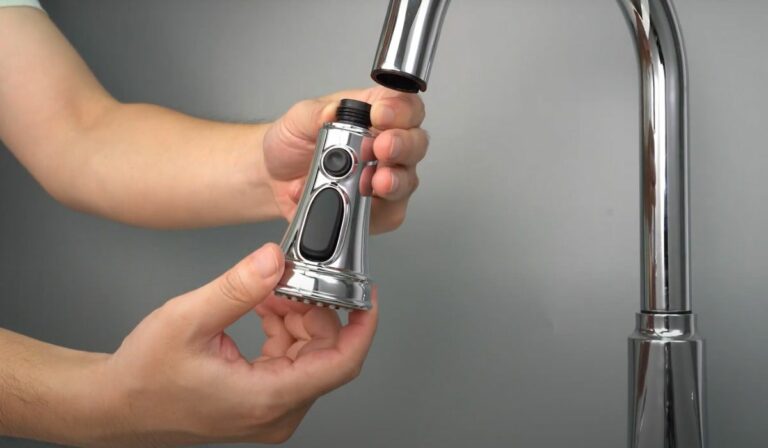Where To Donate Kitchen Appliances
If you’re upgrading your kitchen or simply decluttering, you might be wondering where to donate kitchen appliances. Donating is a great way to extend the life of your items, help those in need, and reduce waste. But knowing the best places to give your appliances and how to prepare them can make the donation process smooth and rewarding. In this guide, you’ll learn why donating kitchen appliances matters, what types are most suitable, and exactly where you can donate them.
Why Donate Kitchen Appliances?
Donating your kitchen appliances offers multiple benefits, not just for the recipients but for you and the environment as well. First off, it helps reduce clutter while supporting families or individuals who might not afford brand-new items. Many appliances still have plenty of life left, making donation a practical alternative to throwing them away. Also, donating helps cut down on landfill waste, conserving resources and minimizing pollution. When you donate, you’re essentially giving back to your community and promoting sustainable living.
Types Of Kitchen Appliances Suitable For Donation
Not every appliance is perfect for donation, but many common ones are welcome. Small appliances like toasters, blenders, coffee makers, and microwaves are popular donations if they’re in working condition. Larger appliances such as refrigerators, stoves, and dishwashers can also be donated, provided they are clean and functional. Keep in mind that most organizations prefer items without significant damage or safety hazards. Items with cracked casings, exposed wiring, or broken parts generally aren’t accepted.
Top Places To Donate Kitchen Appliances
There are several reliable options for donating your kitchen appliances, each catering to different community needs and preferences.
Charitable Organizations Accepting Kitchen Appliances
Nonprofits like The Salvation Army and local charities often accept kitchen appliances in good condition. These organizations distribute donated items directly to families in need or sell them to fund their programs. They typically have guidelines on the minimum condition required, so check ahead.
Local Shelters And Community Centers
Many shelters and community centers rely on donations to equip communal kitchens or help residents start fresh. Donating here ensures your appliances go straight to those who can immediately benefit, such as homeless shelters or transitional housing facilities.
Goodwill And Other Thrift Stores
Goodwill is a popular choice, accepting a wide range of household items, including kitchen appliances, provided they work well. These thrift stores offer donated goods at affordable prices, supporting job training and employment programs.
Habitat For Humanity ReStores
Habitat for Humanity ReStores often accept appliances, especially larger ones, to sell at reduced prices. Proceeds help fund affordable housing projects. They tend to accept gently used or refurbished appliances, so it’s worth contacting your local ReStore for specific guidelines.
Online Platforms And Community Marketplaces
If you’re looking for a more peer-to-peer approach, platforms like Freecycle, Craigslist’s free section, or Facebook Marketplace’s donation groups provide options. Here, you can directly connect with individuals or families seeking appliances, often arranging pickup or drop-off at no cost.
How To Prepare Kitchen Appliances For Donation
Preparing your kitchen appliances before donation ensures they’re safe and appealing for the next user.
Tips For Cleaning And Testing Appliances
Always clean your appliances thoroughly, removing any food residue, dust, or grime. Test each unit to make sure it’s functioning correctly. For instance, run a blender or toaster to verify operation. Including original manuals or accessories (like cords) adds value and convenience for the next owner.
Safety Considerations Before Donating
Check for any damages or defects that could pose safety risks, exposed wires, broken plugs, or sharp edges should be repaired or the appliance avoided for donation. A safe appliance benefits everyone involved and prevents liability concerns for both donor and recipient.
Pickup Versus Drop-Off Options
Many donation centers offer flexible options to suit your schedule and convenience. Drop-off is often easiest if you can transport the appliances yourself. But, for larger or bulk items, some organizations provide free pickup services. Scheduling a pickup saves you the hassle of loading heavy appliances but may require advance notice. Always confirm these options with your chosen donation site.
Benefits Of Donating Versus Disposing
Choosing to donate rather than dispose of your kitchen appliances provides meaningful advantages.
Environmental Impact Of Donating Appliances
Donating appliances helps reduce the vast environmental footprint created by manufacturing and waste disposal. It extends the life of your appliances, keeping them out of landfills where they can release harmful chemicals. Recycling or throwing away appliances instead often consumes more energy and resources. So, by donating, you’re actively supporting environmental sustainability.
Supporting Those In Need In Your Community
Donating kitchen appliances directly helps families with limited resources access essential household tools. This support can improve daily life significantly and foster stronger, more resilient communities. Your donation isn’t just an item: it’s a step toward comfort and stability for someone else.
Conclusion
Now that you know where to donate kitchen appliances and how to prepare them, you’re well equipped to make a difference. Whether you choose to donate to a charity, thrift store, or community center, your items will find a new home where they’re truly appreciated. Donating not only clears your space but also supports the environment and your neighbors in need. Next time you’re considering an appliance upgrade, remember the value your old appliances still hold and take pride in passing them on responsibly.

